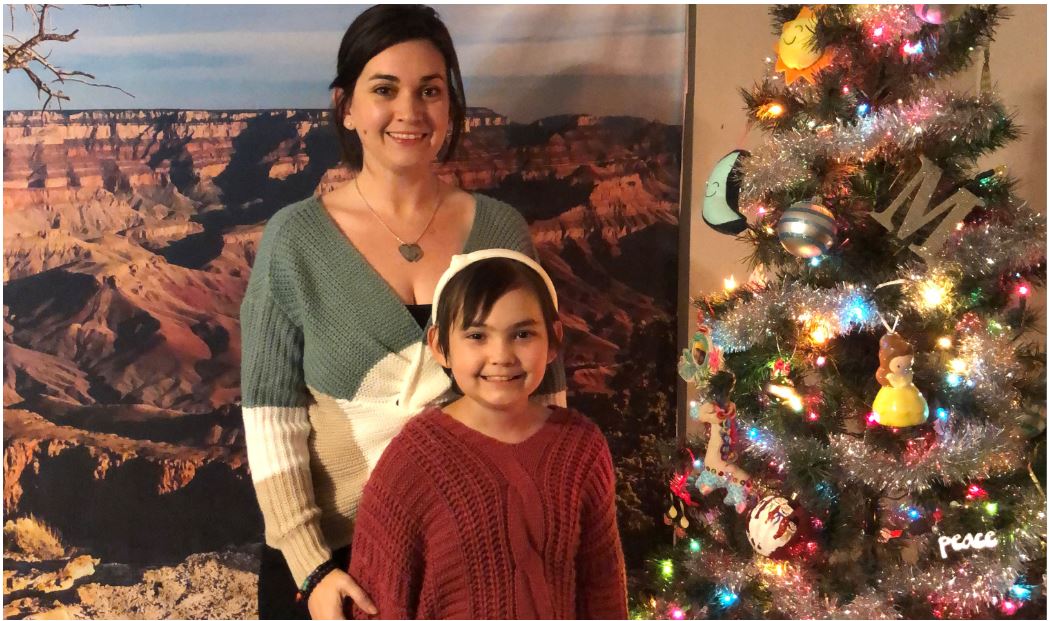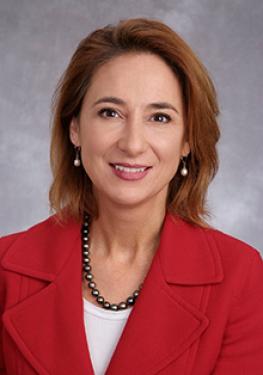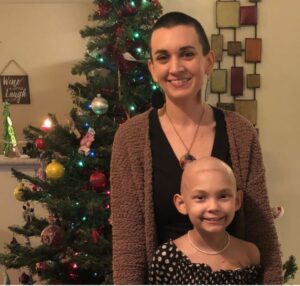As she beats rare, usually fatal blood cancer, ‘Your heart’s just so full of joy’

With each gift that little Morgan Bell opens under the tree on Christmas morning, the family of the 9-year-old West Chandler girl will give thanks and appreciate an even greater gift.
It is a miracle that Morgan has survived to experience another Christmas.
“Every moment, every day, we make sure we’re thankful for that,” said Morgan’s mom, Bridgette Bell. “Special moments like that, big moments like that, it’s just indescribable.
“Your heart’s just so full of joy.”
Too often, we take the daily miracle of life for granted, until some stunning event slaps us into reality. That slap hit the Bells about two years ago. Morgan wasn’t feeling well. She had a fever. Tests ruled out strep throat and the flu. Her bloodwork was normal.
“But she had a fever that just wouldn’t go away,” Bridgette said.
In December, 2018, Bridgette, a single mom, took Morgan to the Phoenix Children’s Hospital Emergency Medicine Department, where she underwent a CT scan.
The scan revealed that Morgan had peripheral T-cell lymphoma, a very rare and aggressive type of non Hodgkin lymphoma, a blood cancer.
How rare?
“It’s 1 in a million,” said Dr. Alexandra Walsh, the PCH oncologist who treated Morgan.
And the prognosis for those who get it?
“There are only a handful of cases where the patient actually survives,” Walsh said.

Morgan immediately was admitted to PCH.
“When she first came in was the most difficult time,” Walsh said. “She had fluid on her lungs, had fluid on her heart. That had to be drained at different times. She was in the intensive-care unit for quite a while.
“Hopefully, I didn’t convey to the family how worried I was and how difficult this was. It’s very rare and very aggressive.”
Morgan recalls learning that chemotherapy was coming in late January, 2019.
“I mean, I didn’t really care at the time,” Morgan said. “I was like so sick I just wanted to get better.”
Because the disease is so rare, there are not many case studies available.
“Regular T-cell lymphoma is more common and more easily treatable,” Walsh said. “We started treating Morgan with that type of treatment, but it didn’t work. So we had to significantly increase intensity of treatment and try some more unique and novel therapies.
“With something like this you kind of have to use your judgment and ask a lot of experts. We tried a bunch of different treatments, some of the newer agents, newer therapies, that target different proteins on the surface of the cancers. We used a combination of those over five or six cycles. We sort of threw everything at it to see what would work. She’s such a trooper. She tolerated everything really well and had a great attitude.”
The worst part?
“The feeding tube,” Morgan said.
The tube in her nose and throat caused issues, according to her mom.
“During that time, she didn’t talk much when it was uncomfortable,” Bridgette said. “That was the hardest time, to see her when she was not really herself. She handled it better than anybody and everybody with her spirit and her attitude in general. And that’s how she’s always been.”
Walsh said that Morgan, then 7, might have benefitted from her youth.
“I think it actually helped us because most patients who have this are adults and they’re less able to tolerate the intensive types of treatments that we used for her,” said Walsh, who earned her Doctor of Medicine degree at The Ohio State University. “I think we are lucky in pediatric oncology because kids’ organs, by and large, are pretty healthy so they can tolerate the intense therapy really well.”
No matter how aggressive the treatment, peripheral T-cell lymphoma is so aggressive that most patients die without getting to remission, according to Walsh.
But Walsh and the PCH team were able to get Morgan into remission in 2019.

A bone-marrow transplant followed soon in July of that year.
“That is quite rare for lymphomas, especially when we’re just starting to treat them versus having them coming back,” Walsh said. “The purpose of the transplant is not only so we can use higher-intensity chemotherapy that your body wouldn’t recover from if we didn’t do the transplant, but you’re also actually giving someone a new immune system so that system hopefully will keep the cancer at bay, too, to help ensure that the cancer never comes back.
“We usually use the patient’s own immune system, but in her case, we decided to use somebody else’s.”
Morgan’s final chemotherapy treatment was in January of this year.
“So she got to ring the bells,” Bridgette said.
Morgan had been out of school and isolated from other kids at Kyrene de las Brisas, near the Bell’s home in the McClintock Drive/Ray Road area in West Chandler, during this year-long episode.
“The kids were nice,” she said. “They made me cards, and called and texted me.”
She was cleared to return to school in February.
“They threw a party for me at school,” Morgan said. “It was so nice.”
Two weeks later, the COVID-19 pandemic hit and soon schools were closed.
“It was a big bummer for everybody, but for us, before this, she had to be in a bubble,” Bridgette said. “She wasn’t at school. We weren’t around people. We’d already been in our own quarantine for a year on top of this. She was still just trying to be a kid through it all.”
In July, Morgan reached the one-year mark of her bone-marrow transplant. She still is in remission. She’s now on three-month appointments for scans, assessments and lab work. She had been going weekly.
When schools reopened in October, Morgan was ready. She’d been out for too long.
“It’s fun. I made honor roll,” Morgan said, adding that she hopes to become a singer or dancer.
It all worked.
“We don’t say that you’re a long-term survivor until five years off treatment,” Walsh said. “The more aggressive the cancer is, the more likely it is to come back quickly, so I think we’re really in a good spot with her since she’s more than a year now.
“It’s really amazing that she’s here and she’s doing amazingly well. To see her just be a little girl and be so vibrant, makes my job worthwhile. It’s worth fighting for. I tell a lot of patients that they’re my favorite but I think Morgan really is. She’s just a ray of sunshine. Sometimes my job has difficult days but I think the benefit is I don’t take anything for granted. I don’t take my own kids for granted. Some people’s Christmases will not be as good as Morgan’s, that’s for sure.”
The episode took a toll on Bridgette, as well. Hit after hit came while Walsh and the PCH team tried to find something that would save her little girl.
“When you’re going through it, it seems like it’s never going to end,” Bridgette said. “You just try to focus on the big picture and that we’re going to look back on this eventually and it will be one of the chapters in the whole book.
“For whatever reason, we feel compelled to share our story in hopes that it helps others, because a lot of people’s stories helped us get through it. Now, seeing Morgan getting back to being herself and being able to be a kid again, has been the best thing. It definitely gives you a reason to go through life with a different perspective than most.”
Morgan is among more than 400 kids who receive cancer care at Phoenix Children’s Hospital. The PCH Foundation’s Step Up, Stop Cancer campaign raises funds for care, research and treatment at the hospital’s Center for Cancer and Blood Disorders. For more information or to donate: phoenixchildrensfoundation.org.


